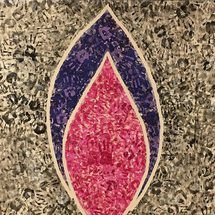
Media Officer Chris reflects on the horrors of the Holocaust as the genesis for Human Rights and the Refugee Convention, and how to make “Never Again” a reality.
27th January marks the liberation of Auschwitz-Birkenau, the largest of the Nazi regime’s death camps. “Liberation” implies freedom, celebration. In reality, hostility, death and despair continued for survivors of the 20th Century’s darkest hour. It took a few years for the world to catch up on the horrors of the war, on the sheer numbers of people who had been murdered by the regime. 6 million Jewish people, as well as other persecuted minorities, an almost incomprehensible loss, murdered using methods that would come to scar the psyche of generations of Europeans, a permanent wound in our recent past. “Never Again”.
But, it has happened again. Cambodia. Bosnia. Rwanda. Darfur. And around the world, groups teeter on the edge of genocide. It doesn’t just happen out of nowhere. There is a path, it is always planned, and there are opportunities in the early stages for the international community to step in and prevent it from escalating. The separation of “us” and “them” is a flashing neon warning sign.
The concept of genocide stems from atrocities committed against the Armenian population of the Ottoman Empire between 1915 and 1923, and it was recognised as a crime under international law in 1946.
The horrors of mankind’s capacity to destroy ourselves, demonstrated so clearly by the Nazi regime, led to the international community drawing up the Universal Declaration of Human Rights in 1948, which in turn led to the 1951 Refugee Convention – an attempt to preserve human life and ensure that the warning signs of persecution are not ignored. The representatives of many countries instrumental in writing the Declaration were acutely aware that they had turned away refugees before, during and after the Second World War.
Refugees continue to be denied their basic human rights. The misery of the refugee camps of Europe; our squalid, oppressive borders; our police, border and security forces “just following orders”; our denial of people’s right to work; our tearing apart of family units; the bleak conditions in which people are forced to live – happening in plain sight. It’s easy to be a bystander, and hope that somebody else will do something about the so-called “refugee crisis”, austerity, homelessness, poverty. But they won’t.
If you care about people, reach out. Get involved in your local community. Stand up for your neighbours. Turn off your television, put away your phone and talk to people. Fight the small fights. Save the people you can, when you can. Only then will we get closer to “Never Again” being a reality, and not just a hashtag.
For more information on the Holocaust, Cambodia, Bosnia, Rwanda, and Darfur, visit the Holocaust Memorial Day Trust. I’d like to particularly draw your attention to a section on Rescuers and Resistance, which reminds us of just some of the forgotten heroes, the everyday people who did what they could to try counteract the Nazi regime and save people’s lives.
